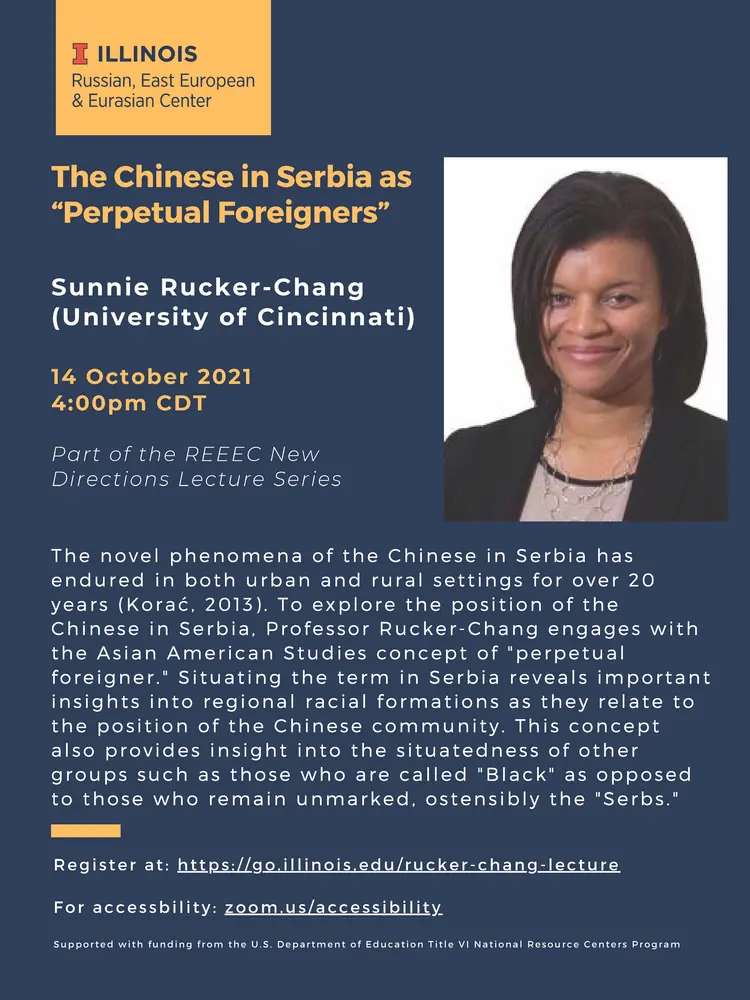
By Peter Wright (Assistant Professor, Slavic Languages and Literatures)
Over the past decade, the field of Slavic and East European studies has undergone a transformation. Marked by the addition of ‘Eurasian’ to our many area studies centers and professional organizations, the field now strives to reflect the global reach and diversity of the region and its histories. At the forefront of this transformation have been scholars like Professor Sunnie Rucker-Chang of the University of Cincinnati. In her work, Professor Rucker-Chang uses postcolonial and critical race theories to de-center the dominant ‘Slavic’ orientation of the field and re-imagine how we study the ‘Others’ of our region. Her New Directions Lecture at REEEC on October 14th about conceptions of Chinese identity in Serbia illustrated precisely this as she demonstrated how the study of a small, seemingly foreign group in Serbia yields insights about dominant identity formation in Serbia and the wider region.
People of Chinese heritage have been a ubiquitous presence in Serbia and the wider region since the early 1990s as post-socialist migration networks brought many to the Balkans and Eastern Europe. Often reduced to foils for nationalist and xenophobic politics, the dominant discourse in Serbia has suspended the Chinese community in the categories of ‘migrant’ and ‘foreigner.’ Much like conceptions of local Roma communities in Serbia and elsewhere in Europe as ‘nomadic,’ this stereotype racializes people of Chinese heritage and sets them apart from the “native” and “rooted” Slavic Serbs. Implicit in this construction of the Chinese migrant, Professor Rucker explained, is the self-racialization of Serbians as white and European. The “transient Chinese” thus becomes a part of Serbian self-fashioning and identity formation through unspoken (“unmarked”) categories of whiteness, western modernity, and rootedness.
As a foil to common stereotypes of Chinese migrants, Professor Rucker’s presentation also revealed that many people of Chinese heritage have lived in Serbia for decades. Most fascinatingly, Chinese merchants with their “kineske prodavnice” (Chinese shops) actually represented a vital lifeline for Serbians during the turbulent 1990s as suppliers of cheap household items when international sanctions caused inflation, currency devaluation, and various product shortages. In this regard, Professor Rucker-Chang’s lecture highlighted not only how ideas about race inflect categories of ethnicity and nation in the small state of Serbia, but also how these categories shape - and are shaped by - a broader history of global post-socialist material exchanges.
Peter Wright is Assistant Professor of Slavic Languages and Literatures at the University of Illinois at Urbana-Champaign.